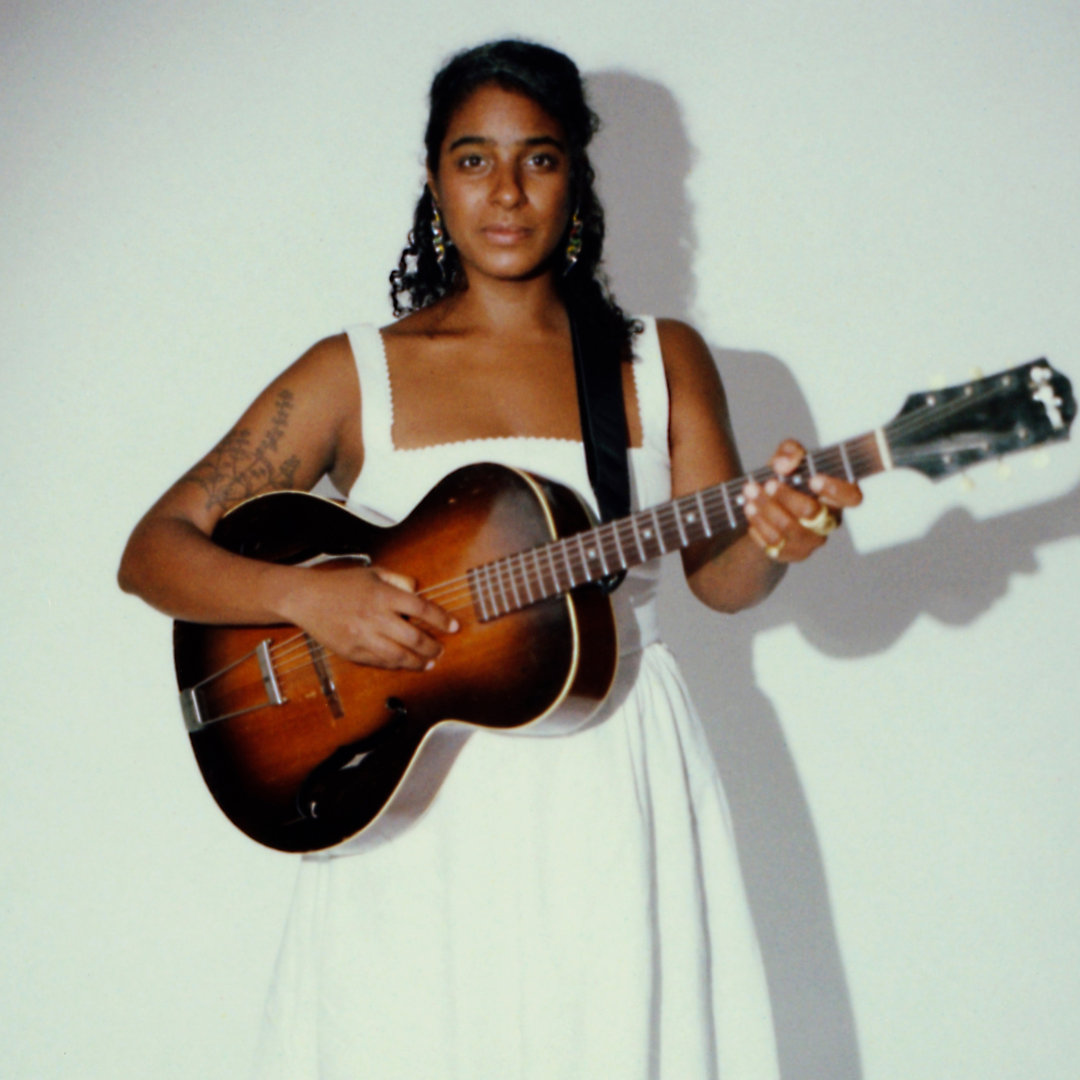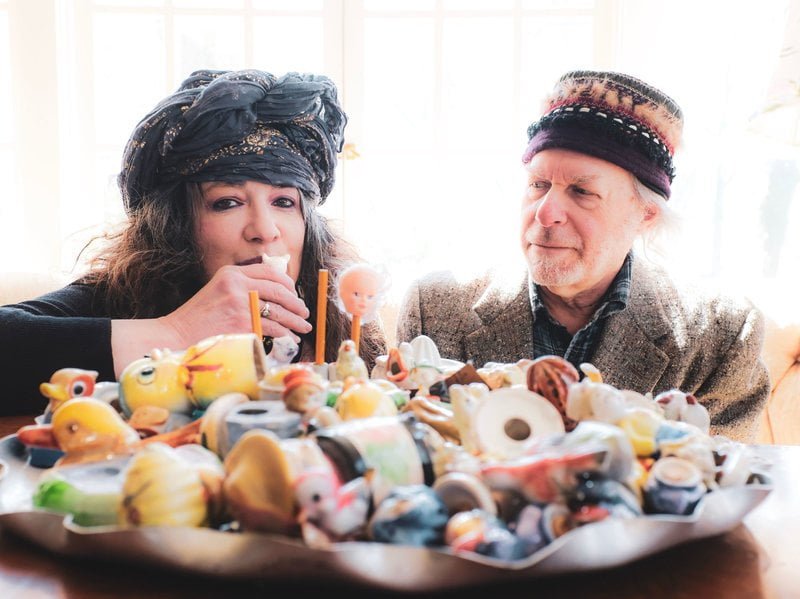When he modified a shotgun house in East Nashville into the “analog studio wonderland” known as the Bomb Shelter, Andrija Tokic wanted to bring the outdoors inside. He decorated with wooden slats and rustic stonework, creating something woodsy in the middle of a busy neighborhood. “If you’re going to be in one room for 10 hours, why not have something to look at?” he says. “For me, it’s stuff that’s usually outside — trees and rocks. There are other studios using wood as an acoustic treatment, but I just feel better being able to sit on something like a porch. It just takes the pressure off.”
If he feels any pressure, it doesn’t show. Over the past few years, his name has become synonymous with a rough-and-tumble branch of roots rock, ranging from the raw blues rock of Benjamin Booker to the scorched-earth Southern soul of Alabama Shakes to the tightly wound garage pop of Denney & the Jets. Although he works in no particular genre, Tokic’s projects are bound by an essential grittiness, an urgency that lends everything a live dynamic regardless of how it was recorded.
The son of Croatian immigrants, Tokic grew up in Takoma Park, Maryland, near Washington, D.C., and found a job manning the boards at a neighborhood studio. He recorded anyone who walked through the door, which gave him a strong grounding in a range of styles: gospel, rock, world beat, even go-go — that spry local sound that remains unsung outside the Mid-Atlantic. The experience also gave him the confidence to move to Nashville, although he found Music Row too restrictive and regimented for his tastes.
At his first studio, located in his home, he recorded the Shakes’ career-making debut, Boys & Girls, then moved to the Bomb Shelter’s current location. In just a few years, it has become a waystation for an array of artists who don’t fit easily into any one particular category or scene, who thrive at the fringes of rock and country.
A lot of people I talk to for this column were musicians first who then migrated into the producer role. But you’re a different. You wanted to do this from the beginning.
I grew up playing music at a very young age, but I got into recording as a teenager and preferred it to playing. I liked the diversity in what you do all the time. It’s cool to get involved with more instruments rather than just playing the same old guitar part. You’re able to do different kinds of projects and different kinds of music. It’s like playing in a whole bunch of different bands. That variety is really what got me excited about it. It’s not about how you play the part, but about how you capture it. How do you create an image in a record or a sense of time when the music was being played? How do you convey how that music was being played?
So I try to treat every project individually. At my studio, we don’t resort to the same setup every time for every band. Some places are like that, but I think it’s about how you can get the most out of every project. So I try to vary everything and customize the process for each specific artist and their strengths and weakness. Maybe a lot of people feel like the foundation of every song is the same: “Alright, let’s start with the drums and build from there.” But some things start with the vocals. Or a guitar. Or even a piano part.
When you started out, was there a song or an album that made you aware of the production?
The Beatles was the first time. I was rifling through my parents’ record collection, and there was a weird Yugo Tone version of Yellow Submarine. God knows what kind of editing or recutting happened with that record, but out of all of these records in this collection, it was the one that sounded like color, where everything else sounded like black and white. It was recorded with creativity in mind. I would go back and forth between that and Queen. And I remember loving the Queen record, but it didn’t make me want to grab my four-track.
When I would put on Yellow Submarine, all the parts just had so much character. To this day, the Beatles stand as a new approach to recording music. There’s still something about it that’s never been done the same. There are all kinds of things in their songs that make me excited about making music. How do you make guitars sound like that? What are all these instruments popping in and out? There’s no telling what the long-term impact of that record has been for me. But ever since I started playing around with a four-track, whenever I listen to a recording, I always picture what could be happening in the studio.

You got your start in D.C., a city that I think many people associate with punk. Did you have any connection to that world?
I feel like that was already long gone by the time I got started. I’d heard stories about how cool all that stuff used to be. But there was not a lot of rock ‘n’ roll music to record. Definitely the minority of the work I was doing was band-oriented, and a lot of that was jazz and gospel. Only the smallest bit of it would have been rock. There just wasn’t that much to be found, but I think there’s been a resurgence since I left.
D.C. is such a busy place, though. All of the best musicians I knew were these incredible players who played with all of these great people and had long histories and all had day jobs. There weren’t very many people who were only musicians. It was more like, “I’m a musician, but I also work on the Metro.” I didn’t see much opportunity when I was there, but there are more art spaces opening up, and I think things have gotten more affordable. Bands I work with will tell me about playing such-and-such place in D.C. and I’ve never heard of it.
It sounds like that experience gave you a good grounding in a lot of different types of music.
Definitely. I was able to get very, very hands on. There was definitely a good variety of stuff, some jazz and some world beat with a lot of hip-hop in between. We used to do restorations of old recordings — old reel-to-reel and really old records. We had all kinds of strange players that could play weird speeds with different head configurations. It was all kinds of audio — whatever came through the door. These days I’m working with musicians, and it’s more like curating a sound or working on a project from the ground up.
What kinds of conversations are you having with artists before the sessions start?
The first thing I like to do is try to get a feel for the music in its rawest form. Does the artist write on piano or do they write on guitar? Just hearing how they wrote the songs is helpful, so I love getting an early demo. What are the things they’re hoping to capture? How do they want to record the music and have a great time working on it? So, if I can hear a song with nothing added to it and not really stylized in any way, I get to think about what it could sound like in the studio.
It’s about trying to figure out the vision. If it’s a band, do they want to create a new sound and get studio heavy, or do they want to maintain a sound they’re already performing? I’m just trying to collect as much data before we set off in a particular direction, because that just makes everything more fun and more productive. But if I hear something and I want to go left and the artist wants to go right, that’s cool. I want to try what they’re thinking, or maybe it’s not going to feel like something I can help with.
You have a reputation for working very quickly in the studio.
I would say I work very efficiently. But it’s such a relative thing. You think about a place where they’re pounding out publishing demos and doing more songs that I’d even consider starting in a day. They have to work quickly. I do think it’s healthy for everyone to get a lot done and always be moving forward, even if there are projects where it’s not necessarily a good idea to set aside however many days to knock out the record. Sometimes you need to spread things out so you can readdress things or reapproach certain parts. Nobody wants to be sitting there running up the clock and not moving forward. You’re going to get burned out and frustrated.
There have definitely been projects where we knew we were going to have to try a bunch of different things. It’s going to be a much longer project. And then there are projects where we know exactly what we’re doing and we have it all mapped out. I always believe in letting the studio be an instrument, as well. I like to get things about 80 percent dialed in before we start, but leave a certain amount of openness to see what happens. You get everybody in a room playing together and sometimes things take on a new life that you never envisioned. “Hey, this is working well. We didn’t think to go in this direction, but it’s working. So let’s not be afraid to go off course a little.”

It also sounds like you’re playing a lot of different roles on these projects — not just what we think of as producing, but engineering, mixing, a little bit of everything.
I guess it’s all so connected! I’ve been hired to make something, so I just use the tools to my utmost ability. Whatever the project is, I do what sounds and feels right to me and to the artist, as well. Those lines get crossed a lot. I can produce this record, but I might as well engineer it, too, rather than run it through a different set of hands. I’ve worked as an engineer. I’ve been hired as a mixer. But I guess I’ve always thought that those jobs crossed each other a lot. After all, arranging a song is just as much about mixing it as sitting down and working out the parts. Some mix engineers spend a long time cutting out parts and moving parts around and rearranging the structure of the song. For me, that’s just part of the production: “Oh, we need something on the second chorus. It doesn’t sound big enough. Let’s throw another guitar in there.”
There are still a thousand definitions of what a producer does and what an engineer does. It’s comes down to what people individually feel. Especially with all of the changes happening in the recording industry, the roles are becoming harder and harder to define. I think they come down to individual people making their own definitions. Also, genre is a big thing, too. If you’re producing a jazz record, it would be closer to arranging, whereas if you’re doing a psychedelic rock record, you’re going to be doing a lot more with microphones, adjusting flangers, messing with gear. It all demands different knowledge and a different role.
You work primarily in tape instead of digital. Does that change your approach?
I think so. I can work on any format, but I find myself most fluently working with tape. I think it’s because it’s the format that I started on. It means more work on the front end and maybe less on the back end. You have to work out the parts and figure out what sounds best in a different way than when you’re working on a computer. Then the big thing is editing. It definitely affects the process, but the thing I’m thinking about is what suits the music the best.
Looking over your discography, I noticed a lot of bands seem to come to you when they’re recording a debut or making a big album, like Alabama Shakes or Hurray for the Riff Raff.
I’ve wondered if that’s the case. Maybe that’s part of my path or something, I don’t know. I definitely feel like a lot of people approach me looking to try something different or take a new step. It’s not always somebody’s first record. It’s hard to say. But I do enjoy developing something new from what’s already there. I like hearing demos and thinking about what we can do with the material. “What can we do to grow this into something new?” That’s always on my mind.
I wouldn’t attribute this to being someone’s first record, but I definitely like recording something where there are no expectations that you have to guide an artist toward. “Okay, we can stay in the same world as this previous record or we can change things up this way or that way.” My favorite people to work with are the people who are uninhibited about the music. I guess people tend to come to me already in that mindset.






